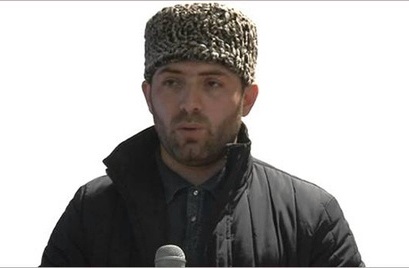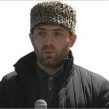
Muslim Clerics in the North Caucasus: Between the Hammer and the Anvil
Publication: Eurasia Daily Monitor Volume: 12 Issue: 167
By:

The patterns of assassinations of clerics in the North Caucasus changed significantly after the establishment of the Caucasus Emirate. Prior to the advent of the Caucasus Emirate, the insurgents did not target religious figures. However, after proponents of the Caucasus Emirate declared as their goal the establishment of an Islamic state in the region, the situation changed dramatically. During the period from 2009 to 2014, insurgents killed 41 Muslim clerics in the North Caucasus. Among those slain were the prominent Dagestani sheikh, Said Chirkeisky, and the deputy mufti of Stavropol, Kurman Ismailov (Kavkazsky Uzel, November 19, 2014).
Several clerics have been killed in the region in the last several weeks. On the morning of August 20, 2015, Zamirbek Makhmutov, the deputy imam of the village of Irgakly, in Stavropol region’s Stepnovsky district, was found dead (Kavkazsky Uzel, September 9).
On September 9, another imam was killed, this time in Dagestan. According to investigators, two masked men fired shots at the imam of the local mosque in the village of Novy Kurush, in Dagestan’s Khasavyurt district, 34-year-old Magomed Khidirov, as the cleric was on his way to morning prayers, killing him on the spot. The attackers managed to escape the crime scene (Gazeta.ru, September 9).
Novy Kurush is a Lezgin village that was established to compensate the Lezgins for a village that was handed over to Azerbaijan. About 9,000 people, mostly ethnic Lezgins, live in this village. The village has two mosques, one of them Sufi the other Salafist. Khidirov, the victim in this latest attack, was the Sufi mosque’s imam.
According to residents of Novy Kurush, Khidirov had no conflicts with the Salafists. However, it is hard to call his relations with the Salafists friendly. Several weeks prior to his murder, the Salafists invited him to their mosque and tried to convince him that the Sufi teaching is wrong. According to the Spiritual Board of Muslims of Dagestan, Khidirov often argued with the local radicals, trying to convert them to Sufi Islam (Izvestia, September 9). The Salafists of the village certainly did not like Khidirov’s behavior and may have regarded him as a threat to their influence on their supporters.
Investigators believe the Salafists murdered the embattled Sufi imam in order to weaken Sufi adherents and establish full control over the village (Kavkazpress.ru, September 9). According to the police, Sufi and Salafist supporters in the area have been on a collision course lately.
“The deceased imam often took part in mediation efforts to relieve tensions,” police officials said (Kommersant.ru, September 9). However, the head of the Center for Islamic Research in the North Caucasus, Ruslan Gereyev, who was acquainted with Khidirov, disagreed with the police about a Sufi-Salafist conflict. “He did not have strong confrontations with the Salafist community,” Gereyev said. “He was not a combative polemicist. Their disagreements did not go beyond the boundaries of theological debates that have been going on in the republic for decades. Khidirov had an outstanding educational background, both secular and religious. He enjoyed a great respect among the villagers and he could have been called a popular leader” (Regnum, September 9). However, investigators are sticking to the version that Khidirov was killed for his religious activities. The rebels who are based in the Khasavyurt district may have carried out the attack.
Unofficially, the attackers were identified immediately, but the information was not disclosed through proper law enforcement channels for some time. According to unofficial sources, two locals were behind the murder. The suspects, the Sardarov brothers, are Lezgins who recently joined the armed Islamist underground movement—specifically, one of the groups operating under the leadership of the rebel amir of Khasavyurt district, Valid Motsaev. To locate and arrest them, the authorities imposed a counterterrorist operation regime in the villages around the city of Khasavyurt. The police found out that the suspects were located in the area between the villages of Botayurt, Novy Kurush and Sadovoe, where an insurgent summer base is apparently located (Ntv.ru, September 11). However, the police were unable to arrest the suspects, and the special operation regime was lifted the next day. The incident shows that young volunteers are continuing to join the ranks of the militants, thereby depriving themselves of the opportunity to reside legally in the republic.
The police said that the murder of Magomed Khidirov bore the “style of the local militants” (Riafan.ru, September 9). Moreover, investigators think that the recently appointed amir of the Khasavyurt Sector of the so-called Islamic State (formerly, the Islamic State of Iraq and Syria—ISIS), Valid Motsaev, was believed to be behind the murder. Motsaev succeeded the previous leader of the group, Islam Muradov, who was killed by police last month (Kavkazsky Uzel, August 25). If the information that militants were involved in Khidirov’s murder is confirmed, it will make that attack the first one carried out by militants in the North Caucasus affiliated with the Islamic State.
Muslim clerics in the North Caucasus find themselves between the hammer and the anvil. They are killed by militants but also persecuted by police: The insurgents kill them for criticizing their views on Islam, while the police persecute them for not speaking out against Salafism or for siding with the Salafists. The authorities make demands of the local mullahs and mosque imams because they are paid by the government with the funds from the Spiritual Board of Muslims. The militants demand that the mullahs and the imams do not do or say anything that would go against the ideology of the armed resistance.
Thus, the village and city imams in the North Caucasus are practically at the forefront of combatting armed extremisms and radicalism. The authorities do not protect them, so they are easy targets for the militant groups.




